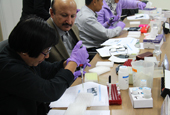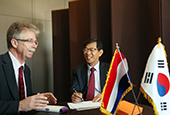The Korea Seed and Variety Service (KSVS) and the Korean Intellectual Property Office (KIPO) have joined forces to develop and protect the domestic seed industry.
The two organizations co-hosted a symposium on December 12 to discuss intellectual property (IP) surrounding newly developed seed varieties and the effectiveness of such copyrights. They discussed topics of mutual interest centered on protecting the IP of a newly developed seed variety, the core of the industry.
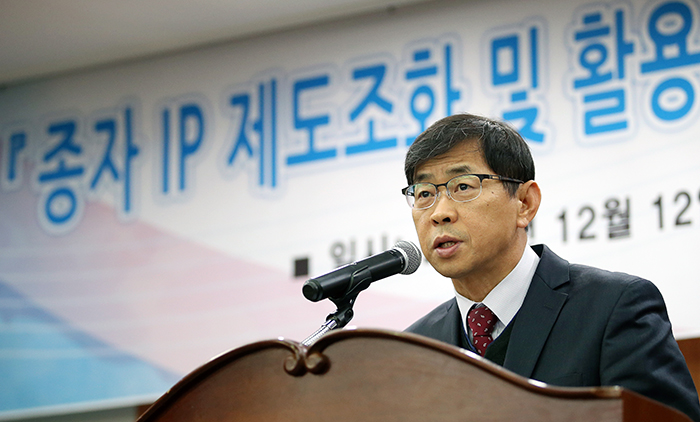
Shin Hyun-kwan, director general of the KSVS, said, "What private seed companies and individual seed developers can do determine the capability of the nation. The importance of the IP of various seed varieties, especially in the private sector, cannot be emphasized enough."
He continued to say, "In this year alone, more than 650 patent applications related to protecting a seed variety have been submitted, up by about ten percent from last year. This means the ecology is getting healthier."
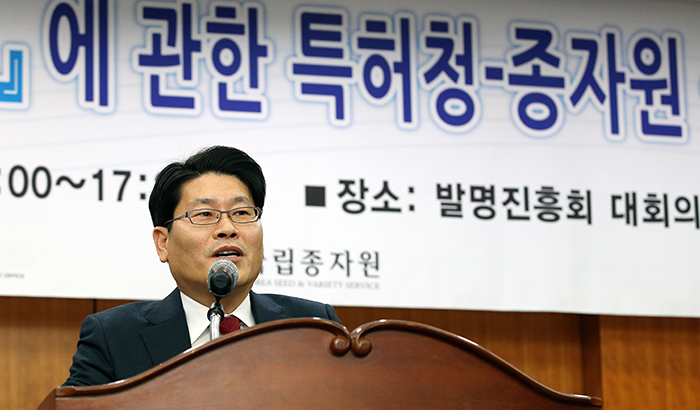
The symposium was comprised of presentations around four topics and then group discussions.
Lee Ho-jo, director of the Food, Agriculture, Forestry & Fisheries Examination Division at the KIPO, gave a presentation about Korea's existing IP system and how to protect seed industry IP rights.
"The seed industry has often been excluded from the protection of the patent system. That's why a number of countries are using both patents and a separate seed variety protection system. This symposium is a chance to share the similarities and differences between the patent system and the seed variety protection system. It can be a win-win meeting for both farmers and seed developers," explained Director Lee.
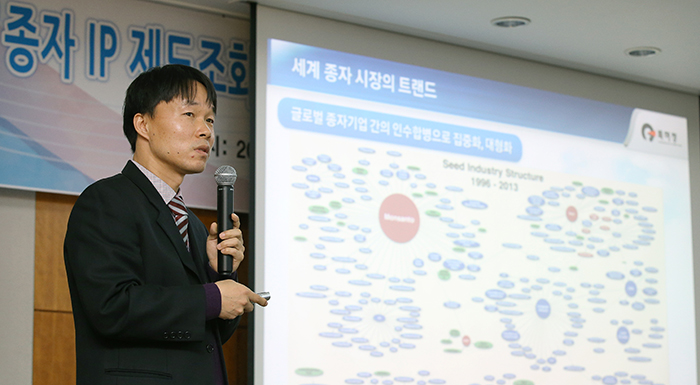
Director Lee said, "The patent system was produced to cover more advanced and creative concepts. It is a system that protects technologies."
He gave an example regarding the difference between the patent system and the seed variety protection system. "What makes a red apple redder is something protected under the seed variety protection system. However, a technology that enables apple trees to bear different types of fruit can be protected by the patent system.
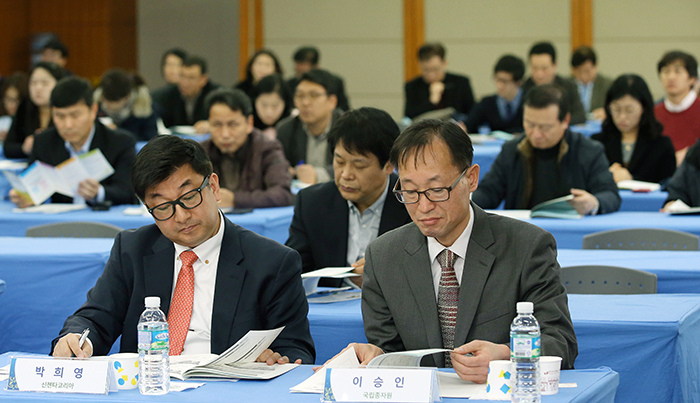
Lee Seung-in, an examiner at the KSVS, talked about the effects of the Nagoya Protocol and current global trends on the adoption of a seed variety protection system. He explained current issues and affairs related to seed variety protection systems, and then pointed out that the seed industry is an important industry for future economic development.
During the subsequent discussion sessions, participants agreed that a better understanding of IP rights in Korea and other nations was needed if there is to be a successful implementation of the Golden Seed Project (GSP). The GSP would establish a cooperative partnership for the creation of rights and oversee the launch an advisory body at the national level so as to protect and develop related IP rights.
By Jeon Han, Lee Seung-ah
Photos: Jeon Han
Korea.net Staff Writers
hanjeon@korea.kr
The two organizations co-hosted a symposium on December 12 to discuss intellectual property (IP) surrounding newly developed seed varieties and the effectiveness of such copyrights. They discussed topics of mutual interest centered on protecting the IP of a newly developed seed variety, the core of the industry.

Shin Hyun-kwan, director general of the KSVS, emphasizes the importance of the seed industry during a symposium co-hosted by the KSVS and the KIPO on December 12.
Shin Hyun-kwan, director general of the KSVS, said, "What private seed companies and individual seed developers can do determine the capability of the nation. The importance of the IP of various seed varieties, especially in the private sector, cannot be emphasized enough."
He continued to say, "In this year alone, more than 650 patent applications related to protecting a seed variety have been submitted, up by about ten percent from last year. This means the ecology is getting healthier."

Cheon Se-chang, director general of Patent Examination Bureau I at the KIPO, delivers his congratulatory speech during the symposium on December 12.
The symposium was comprised of presentations around four topics and then group discussions.
Lee Ho-jo, director of the Food, Agriculture, Forestry & Fisheries Examination Division at the KIPO, gave a presentation about Korea's existing IP system and how to protect seed industry IP rights.
"The seed industry has often been excluded from the protection of the patent system. That's why a number of countries are using both patents and a separate seed variety protection system. This symposium is a chance to share the similarities and differences between the patent system and the seed variety protection system. It can be a win-win meeting for both farmers and seed developers," explained Director Lee.

Lee Ho-jo, director of the Food, Agriculture, Forestry & Fisheries Examination Division at the KIPO, talks about the effective use of the patent system and the seed variety protection system used in the seed industry.
Director Lee said, "The patent system was produced to cover more advanced and creative concepts. It is a system that protects technologies."
He gave an example regarding the difference between the patent system and the seed variety protection system. "What makes a red apple redder is something protected under the seed variety protection system. However, a technology that enables apple trees to bear different types of fruit can be protected by the patent system.

Experts in the seed industry, including Lee Seung-in (right), an examiner at the KSVS, listen to the presentations during the symposium on December 12.
Lee Seung-in, an examiner at the KSVS, talked about the effects of the Nagoya Protocol and current global trends on the adoption of a seed variety protection system. He explained current issues and affairs related to seed variety protection systems, and then pointed out that the seed industry is an important industry for future economic development.
During the subsequent discussion sessions, participants agreed that a better understanding of IP rights in Korea and other nations was needed if there is to be a successful implementation of the Golden Seed Project (GSP). The GSP would establish a cooperative partnership for the creation of rights and oversee the launch an advisory body at the national level so as to protect and develop related IP rights.
By Jeon Han, Lee Seung-ah
Photos: Jeon Han
Korea.net Staff Writers
hanjeon@korea.kr
